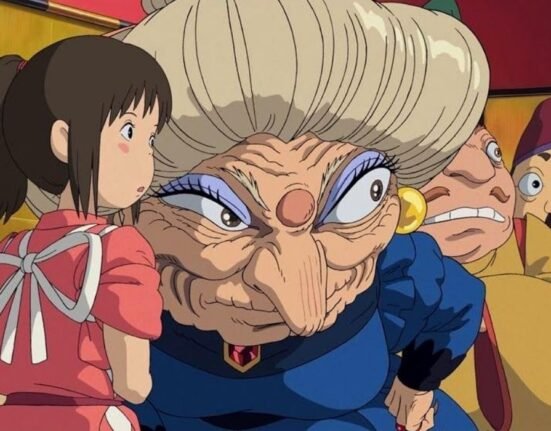To be ignored is a very human feeling and one that tends to cause discomfort, whatever the context. Whether it’s a friend who does not respond to a message, a colleague who ignores your input, or a stranger who walks by without acknowledgment, the sting of being overlooked is real. But what makes this small act feel so fraught? Psychological studies show that our loathing of being ignored springs from basic human needs — social connection, self-esteem, and a feeling of belonging — and is heightened by the influences of evolution, neurology, and culture.
The Social Nature of Humans
Humans are social creatures by nature. Our survival, evolutionary psychologists argue, once hinged on our ability to abide by social rules, and fitting in was a matter of life and death. Roy F. Baumeister and Mark R. Leary wrote that the need to belong is a universal core human drive, much like hunger or thirst. Ignored, this need feels threatened; you’re going to be excluded from the group — a genetic fear that, at one time 10,000 years in the past for some of us, would leave you starving or vulnerable to predators.
Read More: Why are Human Beings called Social Animals?
This evolutionary lens is buoyed by research on ostracism, a close relative of being ignored. In his 2007 study, “Ostracism: The Kiss of Social Death,” Kipling D. Williams, a leading researcher on the topic, explains that ostracism is “social death.” Williams’ experimental work, including the well-known Cyberball paradigm — which is a virtual ball-tossing exercise in which participants are eliminated — shows that even a momentary episode of being ditched leads to immediate distress. Participants report a lower overall mood, less self-esteem, and a lessened sense of control, whether the exclusion was from strangers or computers. This suggests that our response to being ignored is ingrained in us, regardless of context or intent.
The Pain of Social Rejection
The emotional bite of being ignored is not only metaphorical — it’s physical. Research in neuroscience shows the same brain areas to be triggered by social rejection as physical pain. In a seminal 2003 study Naomi. Eisenberger et al. discovered in 2003 that the anterior cingulate cortex, a part of the brain which is associated with the distress of physical pain, get activated in response to rejection. This overlap is exactly why being ignored is felt so viscerally painful: our brain interprets it as a real threat to our well-being.
Eisenberger’s work is based on the concept of “social pain,” or the notion that rejection is connected to survival instincts. But being ignored isn’t just hurtful to our feelings; it’s a sign that the social bonds that support us have ruptured. Expressive pain motivates us to restore and explore connections in much the way that physical pain motivates us to avoid damage.
Self-Esteem and Validation
Our dislike of being ignored also has an additional layer, one that lies in how it attacks our self-esteem. Per Abraham Maslow’s hierarchy of needs, esteem — both self-respect and from others — is a basic human need. The act of being ignored makes us question our value. The feeling of ignorance can lead to “self-deprecating behaviors” as people struggle with lower self-worth. We might wonder about our significance: I’m not important enough for a response. Do I not matter?
This is especially the case around relationships. A study from 2018, “Ghosting and Destiny: Implicit Theories of Relationships Predict Beliefs About Ghosting,” by Gili Freedman and others, looks at the phenomenon of “ghosting,” in which someone suddenly stops responding. Ghosted individuals, on the other hand, said they experienced feelings of devaluation and powerlessness, reading the silence as a critique of their value. To be ignored, then, is not just a lack of attention; it is an active denial of our identity in the eyes of others.
Read More: Psychology behind External Validation
The Role of Uncertainty
Disregarded also instills uncertainty, something humans are notoriously averse to. In a 2016 paper, Michael W. Eysenck notes that ambiguity stimulates anxiety by interrupting our ability to envision and gain control of our environment. When someone leaves us hanging, we can only guess: Are they busy? Angry? Indifferent? This open-mindedness compounds our unease. This is echoed by Williams’ research on ostracism, which notes that individuals tend to ruminate more than those who were explicitly rejected, with no resolution in the silence to process.
Cultural and Technological Amplifiers
Cultural norms also play a part in our aversion to being ignored. In collectivist cultures, where harmony and inclusiveness are ideals, being ignored or left out can feel like a deep transgression. Even in individualistic cultures, social media has raised our expectation of constant acknowledgement. A 2020 study by Jean M. Twenge, for instance, establishes a connection between the prevalence of digital communication and increased sensitivity toward social slights. When a text is left on read or a post is left unloved, it’s not just personal — it’s public, magnifying the rejection.
Coping with the Sting
So why do we despise being ignored? It is a perfect storm of biology, psychology, and society. Our brains perceive it as pain, our evolutionary past signals it as danger, and our self-worth depends on others’ attention. But to understand this reaction is a step in the right direction. Williams argues that starting to view getting ignored as reflective of the circumstances of the person who ignored you and not of your worth can lessen its effect. Mindfulness, as well, can allow us to detach from the craving for external validation.
After all, our hatred of being ignored points to a higher truth: We’re wired for connection. It’s not the silence itself that we hate, but what it signifies — a tear in the social fabric that holds us together. As Baumeister and Leary write, “Belongingness is more than a preference; it is a need.” When that need is going unfulfilled or unmet even provisionally, we can feel it in our bones. And maybe that’s not a defect, but a recognition of our common humanity.
FAQs
1. Is hating being ignored a universal trait?
A: Yes, it is as humans have a fundamental need to belong.
2. Why do you take being ignored personally?
A: Because it leads us to question our worth and it is related to the validation we seek from others.
3. Does social media make being ignored worse?
A: Yes, on digital platforms as replies are instant and visible, a text being unanswered or a post being ignored makes the rejection more personal and visible
4. Can being ignored affect our self-confidence?
A: Yes, it can as it leads to feelings of powerlessness and devaluation.
References +
- Baumeister, R. F., & Leary, M. R. (1995). The need to belong: Desire for interpersonal attachments as a fundamental human motivation. Psychological Bulletin, 117(3), 497–529. https://doi.org/10.1037/0033-2909.117.3.497
- Williams, K. D. (2007). Ostracism: The kiss of social death. Social and Personality Psychology Compass, 1(1), 236 247. https://doi.org/10.1111/j.1751-9004.2007.00004.x
- Eisenberger, N. I., Lieberman, M. D., & Williams, K. D. (2003). Does rejection hurt? An FMRI study of social exclusion. Science (New York, N.Y.), 302(5643), 290–292. https://doi.org/10.1126/science.1089134
- Freedman, G., Powell, D. N., Le, B., & Williams, K. D. (2018). Ghosting and destiny: Implicit theories of relationships predict beliefs about ghosting. Journal













Leave feedback about this